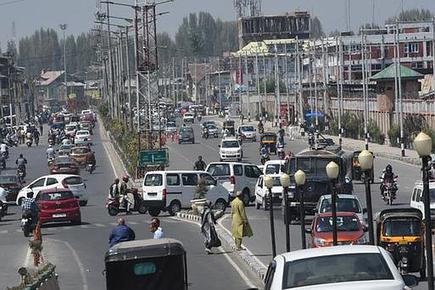SRINAGAR: For the first time, there is no call for a ‘bandh’ in Kashmir on the eighth death anniversary of the Parliament attack convict Mohammad Afzal Guru. Kashmir is normal and life is normal.
Guru was a Kashmiri separatist-turned-terrorist. He was convicted for his role in the 2001 Indian Parliament attack and subsequently received a death sentence for his involvement, which was upheld by the Supreme Court. Following the rejection of a mercy petition by the President of India, he was executed on 9 February 2013. His body was buried within the precincts of Delhi’s Tihar Jail.
Even the life in his home town, Sopore, is normal. “It is almost normal here and people are busy with their daily chores,” officials said here. “All parts of Kashmir are normal.”
On this day, besides separatist groups, even mainstream groups used to demand mortal remains of Afzal Guru. Even terrorists used to carry out terror incidents in the name Afzal Guru.
However, today there is no such incident reported in any part of Kashmir and there isn’t even a statement from anybody demanding mortal remains of Guru.
Banned terror outfit Jaish-e-Mohammed had created a squad named after Parliament attack convict – Afzal Guru Squad – and it had emerged as one of the most lethal terror squads in the Valley. The squad used to carry out aborted attacks on vital army and paramilitary installations, with its cadre leaving deliberate traces of identity.
In the past, frequent, and forced, shutdowns had become the norm. Because of fear of violent repercussions, people unwillingly used to accept these shutdowns without having the space to question them. ‘Hartals’ had also become the order of the day, all of which has now been cured once and for all.
These ‘Hartals’, on the slightest pretexts, not only ruined Kashmir’s economy, but also had a negative impact on the academic landscape of Kashmir. They snatched the ‘right of earning livelihood’ through legal means from the Kashmiris.
Now, it has been proved beyond doubt that keeping businesses shut for months achieved nothing for Kashmir. It worsened the situation economically, caused tremendous misery to the Kashmiris and pushed them into despondency.
The separatists used to issue a weekly calendar of protest. For five months in 2016, different parts of the Valley used to follow this schedule with varying degrees of intensity.
However, the times have changed now. Today, the Kashmir seems peaceful and tranquil. There is a sense of happiness and contentment among Kashmiris. The tourism is on the rise again. Steadily, the Valley is moving towards fulfilling its economic and cultural potential.










